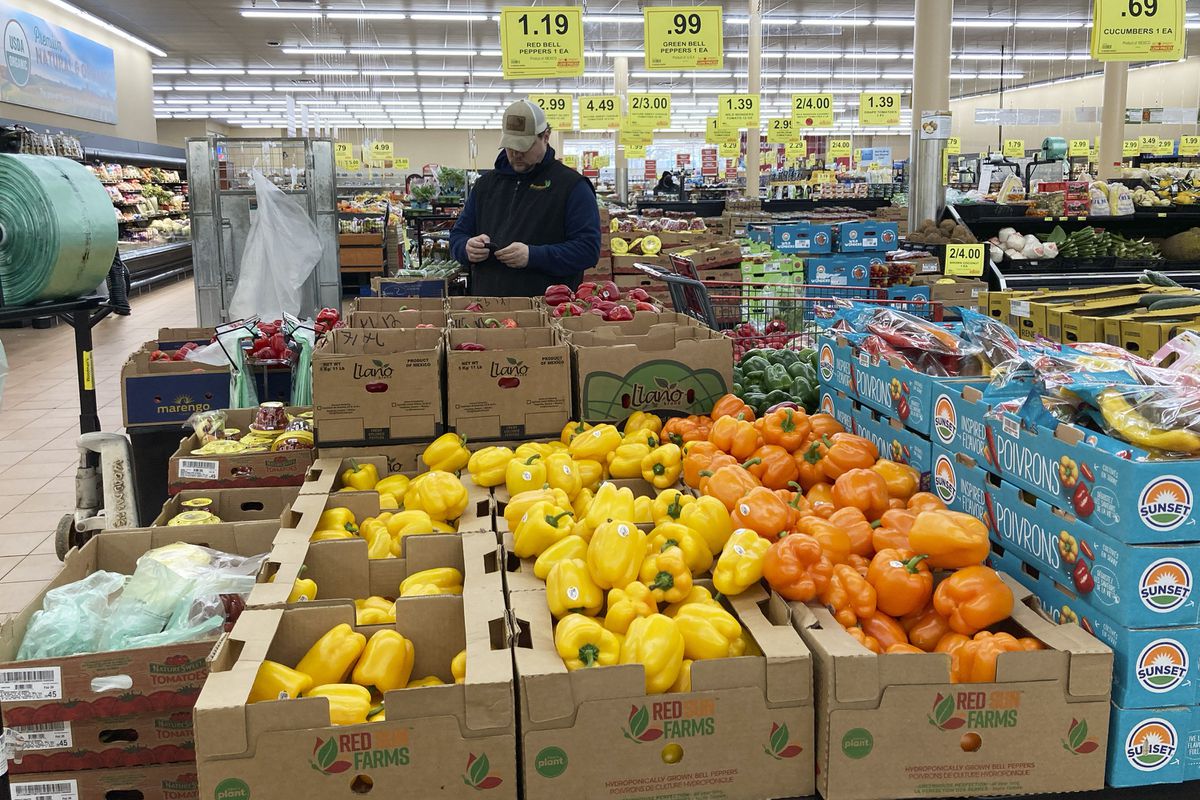







Inflation in the United States has been a topic of concern and discussion, with various reports and indicators shedding light on its impact on the economy and consumer sentiment. Measures of U.S. inflation have shown a gradual decline, indicating that consumer price increases are grinding lower at a steady pace [ffeca896] [31b93324] [70309288]. However, recent reports suggest that progress towards slower price increases may be stalling, raising concerns among investors and policymakers [d1499dbb]. Despite this, a steady inflation rate suggests that the U.S. economy is showing resilience [e7dccaf4].
Consumer sentiment plays a crucial role in shaping economic growth and stability. The rise in near-term inflation expectations among consumers reflects their concerns about higher prices, particularly at the gas pump [b355a00f]. Negative headlines related to various geopolitical events and political issues have also weighed on consumer views, leading to a decline in consumer sentiment [b355a00f].
The Federal Reserve's preferred measure of underlying inflation has accelerated to a four-month high, indicating the need to keep the door open for another interest-rate hike [b355a00f]. This restrictive monetary policy aims to cool inflation and maintain economic stability. However, economists warn that the surge in U.S. GDP growth may be temporary, highlighting the challenges faced by the ailing economy [b355a00f].
The impact of inflation on various sectors of the economy is also worth noting. ETFs from sectors such as consumer discretionary, technology, home construction, and food and beverage are expected to benefit from steady inflation or an improving economy [e7dccaf4]. On the other hand, the decline in prices for imported goods and the deflation in the goods sector have been observed, driven by global supply chain disruptions and decreased energy costs [b173c96c].
Recent reports from newsreports.com highlight the impact of inflation deceleration on small businesses and the consumer base [0c39475d]. The deceleration in inflation in the US economy is leading to a shrinkage in the consumer base for small businesses. Consumer habits are shifting towards larger businesses and online markets, but there is still demand for unique, personalized products. Small businesses need to adapt to changing consumer needs. The inflation deceleration could lower interest rates, presenting growth and investment potential for small businesses. However, small businesses are facing significant challenges, including rising costs, labor shortages, and a shrinking consumer base. The National Federation of Independent Business reports that small business owners are struggling with these challenges. January saw a decrease in consumer spending, putting small businesses under strain. Despite the challenges, small businesses play a crucial role in the economy, contributing nearly half of the US's economic activity. Optimism persists in the small business sector, with confidence in fiscal recovery and the resilience of small businesses.
Overall, the theme that emerges from these inputs is the impact of inflation on consumer sentiment, economic growth, and various sectors of the economy. It highlights the need for policymakers to carefully manage inflation and its effects on the overall stability and well-being of the economy. [ffeca896] [31b93324] [70309288] [d1499dbb] [e7dccaf4] [b355a00f] [b173c96c] [0c39475d]